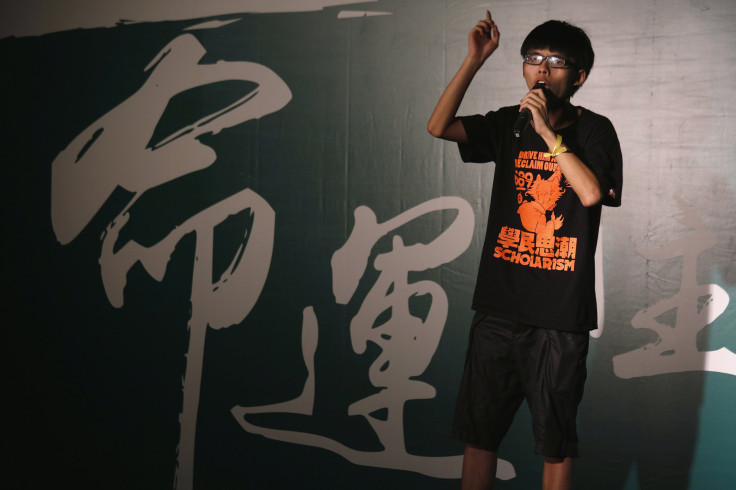Hong Kong Protests: How China Lost Hong Kong's Youth

The protests engulfing Hong Kong intensified on Tuesday, as demonstrators fanned out across the territory’s business districts to express their opposition to Chinese interference in Hong Kong’s electoral system. But while the protests now include a broad cross-section of society, their origin as a youth-led movement illustrate the degree to which Hong Kong’s younger generation, too young to remember British rule, feels increasingly alienated from Chinese society.
“Hong Kong is Hong Kong and China is China,” said Ashley Au, a 31-year-old public relations manager demonstrating in the Causeway Bay neighborhood. “We want more of a say in our government,” she said by telephone.
Hong Kong’s protesters are demonstrating against a law, passed last month, that limits eligibility for the territory’s 2017 chief executive elections to candidates vetted by Beijing. But the roots of the current protests are deep. When China regained sovereignty over Hong Kong in 1997, the Communist Party promised to leave the territory’s political, economic, and legal systems intact for 50 years, an arrangement Beijing calls “one country, two systems.” But in the ensuing 17 years, Beijing’s interference in Hong Kong’s affairs has elicited periodic pushback. Most recently, student activists launched widespread protests in 2012 against a proposed “patriotic curriculum” law that would have imposed the Communist Party’s version of history upon the territory’s textbooks. Hong Kong’s chief executive at the time, Donald Tsang, agreed under pressure to drop the proposal.
The success of the patriotic education protests was due in no small part to the Scholarism movement, whose leader, Joshua Wong, now 17, has played a central role in the current protests. Occupy Central, the organization behind major demonstrations earlier this summer against the law, had originally planned to wait until Oct. 1, China's national holiday, to protest the new election law. But after Scholarism and other student-run organizations sparked the initial demonstrations last week, Occupy Central joined in.
“These are average students -- they’re not your activist class,” said Trey Menefee, a longtime Hong Kong resident and professor at the Hong Kong Institute of Education who has participated in the protests. “There’s no special demographic within the age -- it’s just an age thing.”
According to a Hong Kong University survey published this month, 75 percent of respondents aged 18 to 29 expressed distrust in the Chinese government while 85 percent had no confidence in China’s “one country, two systems” formulation. For respondents over 50, these numbers are 41 and 42 percent, respectively.
Beijing’s inability to charm Hong Kong’s younger generation may have repercussions beyond the small territory. On Sunday, Taiwan’s President Ma Yingjeo told al Jazeera that the situation in Hong Kong “worried him” and that he rejected the “one country, two systems” template for Taiwan, despite his party's favoring closer mainland ties.
Within Hong Kong, where protesters have hung the flag of the People’s Republic upside down in defiance, young people have expressed a marked reticence to join a country whose meteoric rise has transformed the world’s geopolitics and economy.
“This is the first generation to be required to learn Mandarin, and they’re the most resistant to mainland culture and politics,” said Menefee. “They know it the best and resist it the most.”
For demonstrators like Au, the question of identity was even more stark.
“We don’t feel like we’re a part of China, and I don’t feel Chinese,” she said.
© Copyright IBTimes 2024. All rights reserved.






















